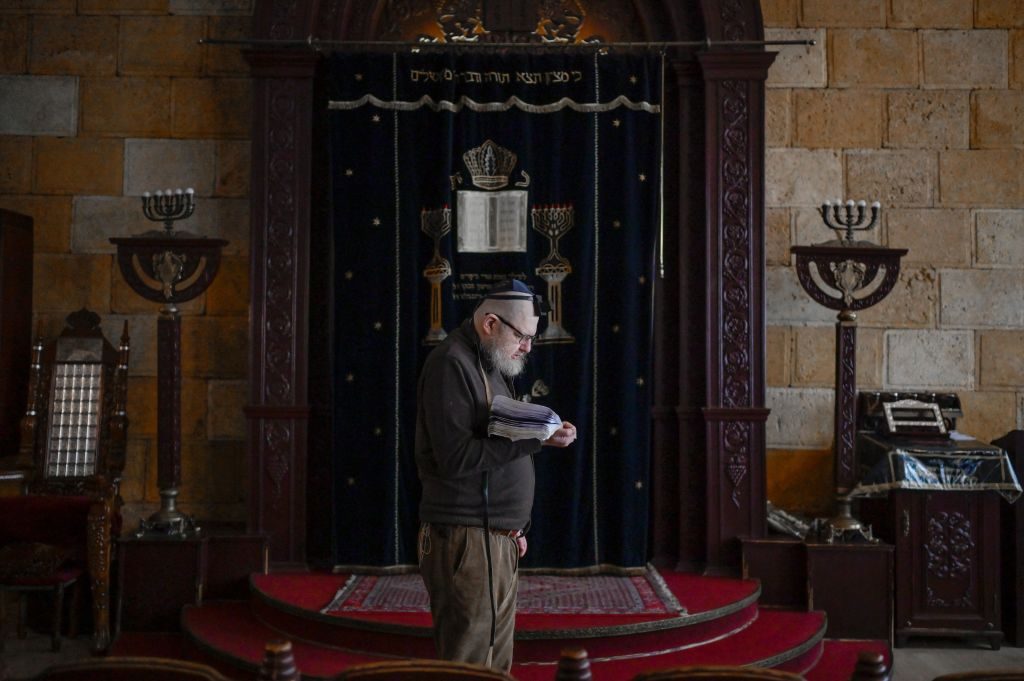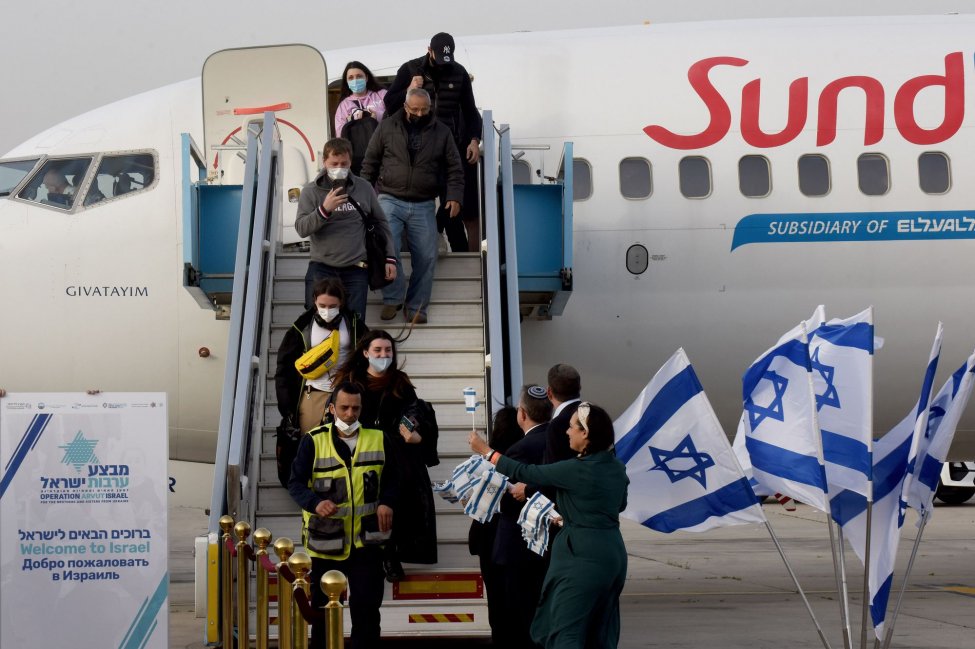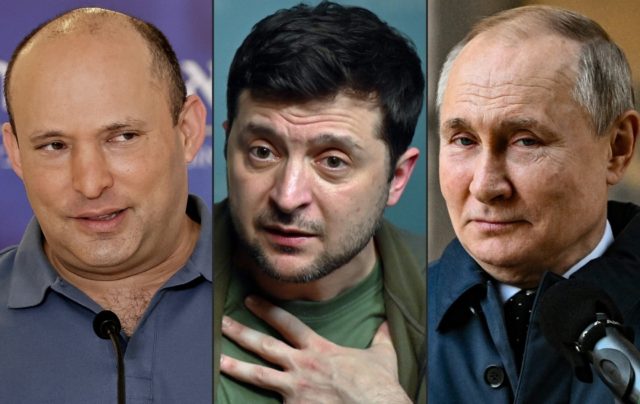Israeli Prime Minister Naftali Bennett held an hour-long telephone conversation with President Volodymyr Zelensky Saturday evening, after the Ukrainian leader proposed Jerusalem host peace talks with Russia.
The conversation “dealt with ways to stop the fighting in Ukraine and the efforts that Israel is making on the matter,” the Israeli Prime Minister’s Office said in a statement.
In a tweet, Zelensky said: “We talked about Russian aggression and the prospects for peace talks. We must stop repressions against civilians: asked to assist in the release of captive mayor of Melitopol and local public figures.”
According to an Israeli TV report which cited unnamed officials, Russian President Vladimir Putin was considering the proposal but “it’s premature to assess its chances.”
Another report said that on Saturday’s phone call, Bennett had recommended Zelensky take Putin’s offer to end the war – which comes with considerable sacrifices on Ukraine’s part. “If I were you, I would think about the lives of my people and take the offer,” Bennett reportedly said.
Bennett and Zelensky have spoken several times since the Russian invasion. Bennett has also spoken with Russian President Vladimir Putin and a week ago made a lightening trip to Moscow to meet with the Russian leader.
Zelensky asserted Israel’s founders partly comprised of Ukrainian immigrants “who brought with them their history and their desire to build a great country, as it is now. So it’s not bad at all for us to have such mediation.”
“We generally support mediation by anyone,” he told the Haaretz daily. “But I wouldn’t call Prime Minister Bennett ‘anyone.’ You can play an important role because Israel is a country with a rich history.”
He added peace talks could not take place in Russia, Ukraine, or Belarus. “These are not places where we can come to any understandings on ending the war — I’m not talking about technical meetings but meetings between leaders. I believe Israel can be such a place, especially Jerusalem. I think so, and I said this to Bennett.”
Israel has been ambivalent in its stance about the Russia-Ukraine war.

A Jewish faithful prays in the Chabad Synagogue in Odessa on March 9, 2022, 14 days after Russia launched a military invasion on Ukraine. Forced yet again into exile, as so many times in their tormented history, Jews are leaving in droves from the Ukrainian city of Odessa, threatening the last traces of a once-vibrant culture. (BULENT KILIC/AFP via Getty)
As an ally of both Russia and Ukraine, it has been cautious about taking sides. Russia also has heavy military presence in Syria and controls its skies and as such, Jerusalem coordinates all military strikes on Iranian targets in Syria with Moscow.
While Israeli Foreign Minister Yair Lapid condemned Russia’s invasion as a “breach of the international order,” the country has stopped short of offering military assistance or directly condemning Russia. On Sunday, Lapid doubled down on his criticism during a three-day visit to Bucharest to discuss the crisis, saying “Israel condemns the Russian invasion of Ukraine,” for which there is “no justification.”
More than 1.5 million Israeli citizens are from Russia and in addition, both Ukraine and Russia have large Jewish communities and Israel sees itself as a protector of Jews in the Diaspora.
While Kyiv has ostensibly praised Israel’s willingness to act as mediator, it has also criticized Jerusalem’s refusal to send military aid as well as its reluctance in choosing a side.

Three flights carrying more than 400 Ukrainian refugees arrived in Israel on Sunday following Russia’s invasion of the country. (Debbie Hill/UPI)
Ukrainian Defense Minister Oleksii Reznikov on Saturday warned its current policy may harm future relations between the two countries.
“Israel is showing an unexplained disconnect and reluctance to choose a side in the war in Ukraine,” he said, according to The Times of Israel.
“This will cause a growing lack of trust for many years because we will win, without a doubt, with you or without you,” he said.
“What can you do? You are very influential in the world and in your region,” he added. “You could express your position more actively.”
An Israeli TV report on Friday said Israel was now weighing Ukrainian requests for defensive equipment.

COMMENTS
Please let us know if you're having issues with commenting.